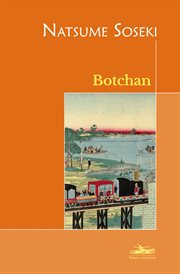Details
PUBLISHED
Made available through hoopla
DESCRIPTION
1 online resource
ISBN/ISSN
LANGUAGE
NOTES
"If in his successful debut book, I Am a Cat (1905), Natsume Soseki satirized the human condition through the eyes of a shrewd pussy, in this Botchan, published just a year later, the Japanese author reaffirms the humorous style with another plot about differences: the cultural shock that pits the big city against the countryside. But Soseki doesn't take the easy way out, painting a hillbilly in short pants in the hostile hurricane of the metropolis. On the contrary: in Botchan, the character who gives the title to the novel is a young math teacher from Tokyo who, at the age of 23, accepts to leave for an inhospitable location in the corners of Japan, on the island of Shikoku, in order to teach what will be his first class of high school students. Social skill is not the protagonist's forte, often compared to JD Salinger's Holden Caufield in Catcher in the Rye. Until taking the job, Botchan had spent the past three years living in seclusion in a ""four-and-a-half mat"" cubicle. His manner is harsh, his patience with others is limited, his impetuosity is always causing him problems, his hunger is insatiable. In Natsume Soseki's savage gaze, it is not the clumsy student who becomes the target of mockery and malice from his classmates, but the teacher whose cosmopolitan accent hurts the ears of students in the province. An adult apprentice, Botchan will have to learn that real life can be far less peaceful than her previous experience indicated, torn between seclusion and the pampering of an old servant in the family. In the novel, Soseki, who was also a teacher in his youth, distills the predicates that made him famous, such as irony, fluid writing and the masterly psychological composition of characters. A classic of 20th century Japanese literature, which remains to this day one of the most popular books in Japan."
Mode of access: World Wide Web







